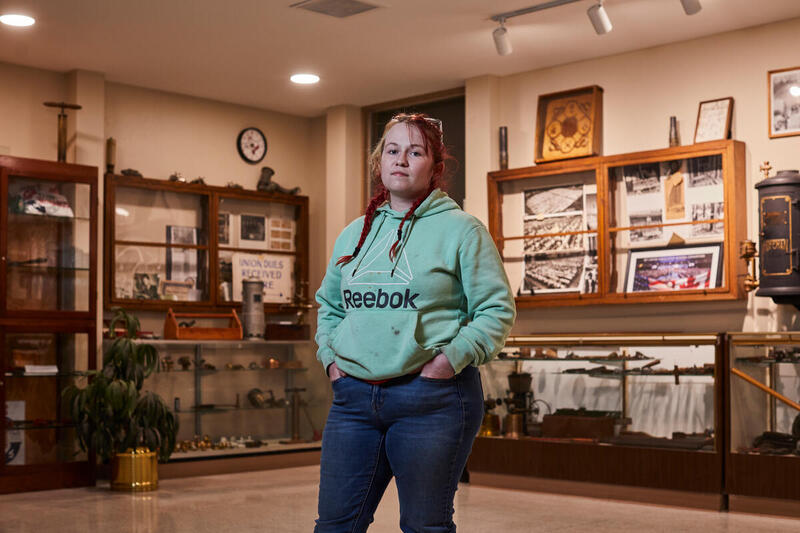Patricia “PJ” Shipman
Patricia “PJ” Shipman is a 3rd year electrical apprentice in Houston, Texas. She’s a member of International Brotherhood of Electrical Workers (IBEW) Local 716.
How did you make your way into an IBEW electrical apprenticeship?
I was working soul-sucking, dead-end retail and service jobs and I wanted an out. I wanted to do work worth doing and work with my hands. The union part was actually by accident – I looked into apprenticeships and the only way I could find training was through the union. I applied, got in, and fell in love with the work and being a union member.
Why is being a union member important to you?
Once I joined, I realized the protections I got as a union member. It was especially important to me as a woman. There are people who have my back – I don’t have to fight against a giant contractor by myself. I’m entitled to benefits, job security, mandatory breaks and lunch, and provided tools and water. A lot of non-union Texas workers don’t have these things because of right-to-work laws and contractors who want to cut corners. Non-union shops are only concerned with the bottom dollar and squeezing as much as they can out of workers.
Why do you think it’s important for unions to engage on the climate crisis?
We need to take steps to address the damage to our climate and the trades need to have a cornerstone in clean energy. We have a [U.S.] president who has said that clean energy, going forward, needs to be sustainable for the earth and for workers – and that means union.
Have you noticed any ways in which your job sites have struggled to handle the climate crisis? What effect has that had on you and your coworkers?
I’m starting to see a class and generational divide based on the climate crisis among my coworkers. Some people don’t think the climate crisis is an actual issue, think it doesn’t affect them, or think it’s too late to do anything. Also, a lot of people are used to the mindset of “you work no matter what, this is a right-to-work state”. Our generation expects more – we know we deserve more. We want unions and we want better working conditions.
Recently, you and a group of other Texas union members went to Washington DC to meet with the Bureau of Ocean Energy Management (BOEM) about ensuring that the offshore wind jobs coming to the Gulf of Mexico are good, union jobs. Why was it important for you all to travel to DC and talk directly with this federal agency?
Issues need to be confronted at the source. BOEM is the agency that will deal with these offshore wind leases and instead of trying to reach them through social media, we went there to make sure they heard us and know that we exist and what we want. We want them to be aware of us.
Where do you hope to see the campaign for union offshore wind jobs go from here?
For next steps, we want to start talking to the public. We want to get people to understand how important these leases are and build support. Ideally, we win our demands. We’re trying to set the precedent for the rest of the world in regards to [the labor standards in] offshore wind and other clean energy jobs.
This interview has been condensed and edited for content and clarity.

